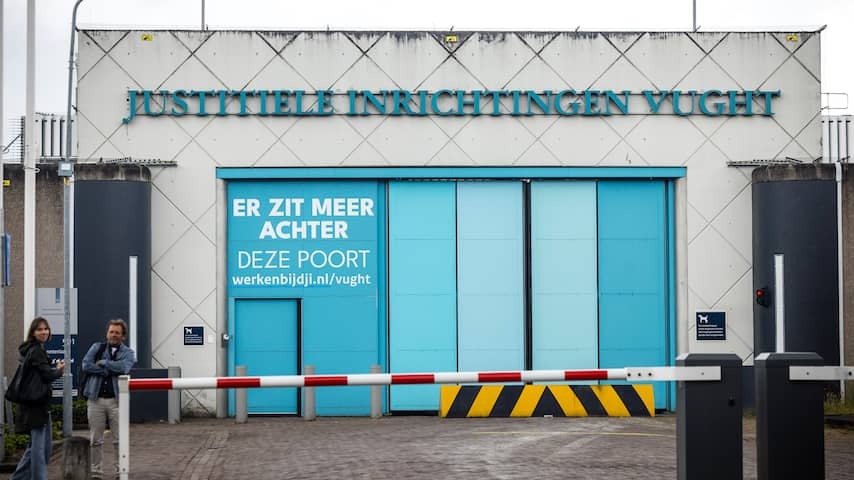
Due to staff shortages in prisons, incarcerated individuals are less prepared for their return to society. This is according to interest groups for prisoners and prison staff speaking to NU.nl. This inadequate preparation poses risks.
Due to significant staff shortages, the reintegration of prisoners into society is not going well, according to Bonjo, an advocacy organization for current and former prisoners in the Netherlands. Many leave supervisors suffer from burnout due to high workload. That would lead to the non-timely commencement or inability to complete reintegration programs for prisoners.
“If you cannot get leave to get used to life outside prison or find a job, that can make it more difficult for you to return to society in a good way,” says Marion van der Laar of Bonjo. “Let’s be honest: without work, you are more likely to relapse into criminal behavior.”
Precise figures are lacking, but FNV, the largest trade union for prison staff, recognizes the picture. The staff would have liked to see this differently as well. “Prison staff want to be able to help prisoners return to society,” says Marcelle Buitendam of FNV.
The trade union leader made working visits to at least twenty prisons and held discussions with dozens of prison staff. “They also find this terrible,” says Buitendam. “Prisoners receive too little help, through, for example, aggression and job application training, to return to society in a good way.”
Judicial Institutions Department Does Not Expect Rapid Improvement
The large shortages within the prison walls lead to unrest among prisoners and staff, say Bonjo and FNV. Prisoners can still make use of basic rights such as daily airing and receiving visits.
But extra activities such as evening recreation or trauma counseling for both staff and prisoners are regularly canceled because there are too few staff members. Also, induction programs would be less careful, to get staff on the shop floor as quickly as possible.
The Judicial Institutions Department (DJI), the executor of prison sentences, reports that the shortages are persistent and difficult to resolve. “We have taken measures that you would rather not take. For example, by releasing prisoners earlier,” says a spokesperson. Also, since January, prisoners can make less frequent and later claims for leave in their prison sentence.
The earlier release of prisoners happens on the instructions of then-State Secretary Ingrid Coenradie (Justice). She saw no other option because other measures, such as reopening prison wards, yielded too little.
“You also cannot put too few prison staff on a group of prisoners,” says the DJI spokesperson. “That poses risks to their safety, which may cause employees to quit.” A significant portion of the prison staff is already considering quitting, concluded EenVandaag after a survey.
Far Fewer Prisons Than Ten Years Ago
About ten years ago, the Netherlands closed nearly twenty prisons because crime was falling, a trend that continues to this day. But after those years of decline, the number of prisoners has been rising again since 2020. In September last year, 9,800 people were incarcerated, according to new figures from statistics agency CBS. That is 2 percent more than a year earlier.
Since the end of last year, the staff shortage in prisons in the Netherlands has been so great that ‘code black’ applies. The workload among staff is also far too high due to the shortages. In addition, the proportion of prisoners with mental or social problems is increasing due to shortages in mental health care. That makes the work more difficult for prison staff.